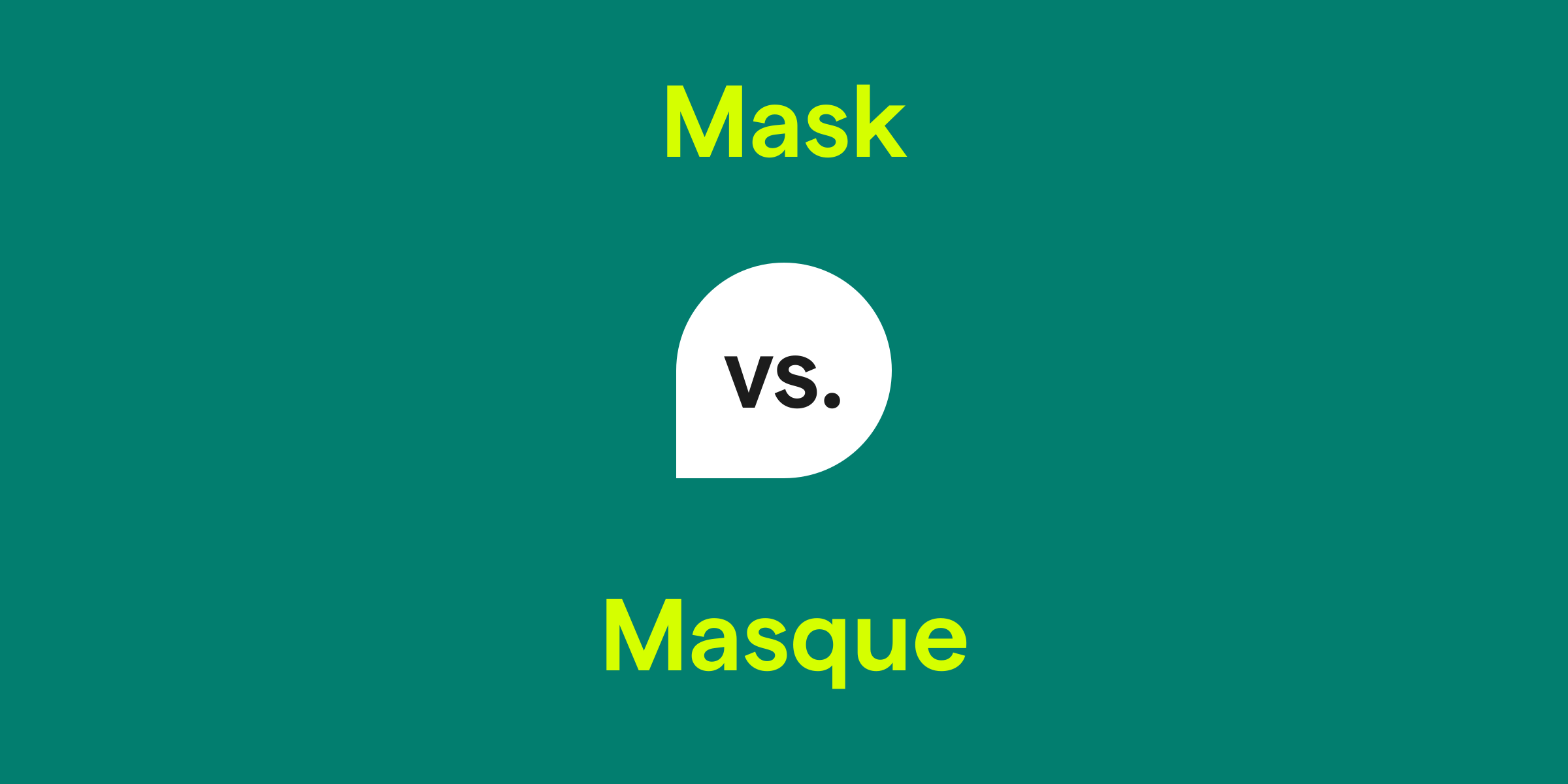Mask vs. Masque: What's the Difference?
The words mask and masque are homophones that can easily cause confusion due to their similar pronunciation but distinct meanings. A mask refers to a covering for the face used for disguise, protection, or performance. Alternatively, masque is an archaic term, mainly referring to a dramatic performance or a costume ball popular during the 16th and 17th centuries in Europe.

How do you use the word mask in a sentence?
The word mask is commonly used in contexts related to health, safety, theater, or festivities. It is used to denote a cover for the face that can serve different purposes, including concealing identity or offering protection from the environment.
Examples of mask in a sentence
- During the carnival, everyone wore elaborate masks and danced in the streets.
- The surgeon put on her mask before entering the operating room.
- Firefighters use smoke masks to protect themselves from harmful inhalants.
How do you use the word masque in a sentence?
The word masque is typically used in historical contexts or in reference to artistic forms of that period. It was a type of festive courtly entertainment that flourished in 16th and 17th century Europe, involving music, dancing, singing, and elaborate costumes. Today, it may be used metaphorically to invoke an atmosphere of that bygone era.
Examples of masque in a sentence
- The royal court enjoyed a masque that featured a dramatic allegory of the monarch's wisdom.
- She studied the Elizabethan era and was fascinated by the opulent masques held by Queen Elizabeth I.
- In literature class, we read about masques and the role they played in Renaissance culture.
Mask and masque definition, parts of speech, and pronunciation
Mask definition:
A mask is a covering for all or part of the face, worn as a disguise, or to amuse or terrify others. It can also refer to a protective covering worn over the face.
Mask parts of speech:
Mask pronunciation:
Mask is pronounced as /mask/, with a short 'a' sound as in 'cat'.
Masque definition:
A masque is a form of aristocratic entertainment in England in the 16th and 17th centuries, typified by music, dancing, and elaborate costumes and scenery.
Masque parts of speech:
Masque pronunciation:
Masque is pronounced as /mask/, identical to mask.
A mask is a covering for all or part of the face, worn as a disguise, or to amuse or terrify others. It can also refer to a protective covering worn over the face.
Mask parts of speech:
- As a noun: The art museum displayed an ancient mask from the tribal region.
- As a verb: He masked his feelings of insecurity with an air of confidence.
Mask pronunciation:
Mask is pronounced as /mask/, with a short 'a' sound as in 'cat'.
Masque definition:
A masque is a form of aristocratic entertainment in England in the 16th and 17th centuries, typified by music, dancing, and elaborate costumes and scenery.
Masque parts of speech:
- As a noun: The king commissioned a masque to celebrate the royal wedding.
- In a historical context: Historians often study masques to better understand the cultural context of the Renaissance.
Masque pronunciation:
Masque is pronounced as /mask/, identical to mask.
Mask vs. masque in a nutshell
Understanding the difference between mask and masque is key for clarity in writing and conversation. A mask is a covering for the face, used for various purposes from protection to entertainment, and is common in contemporary language. Masque, on the other hand, pertains to a specific historical form of entertainment featuring music and elaborate pageantry, now mostly encountered in scholarly writings or historical discussions. Though pronounced the same, these two terms transport us to different settings, one contemporary, the other historical.
Get AI Writing Assistance Wherever You Type
Make sure your vocabulary is on point and every punctuation mark is in the right place, no matter where you’re working. Grammarly works across more than 1 million websites and apps so you can improve your writing without copying, pasting, or breaking focus.

More Commonly Confused Words
Interest piqued? Pore (not pour) over other commonly confused words to help your writing reach peak (not peek) performance.